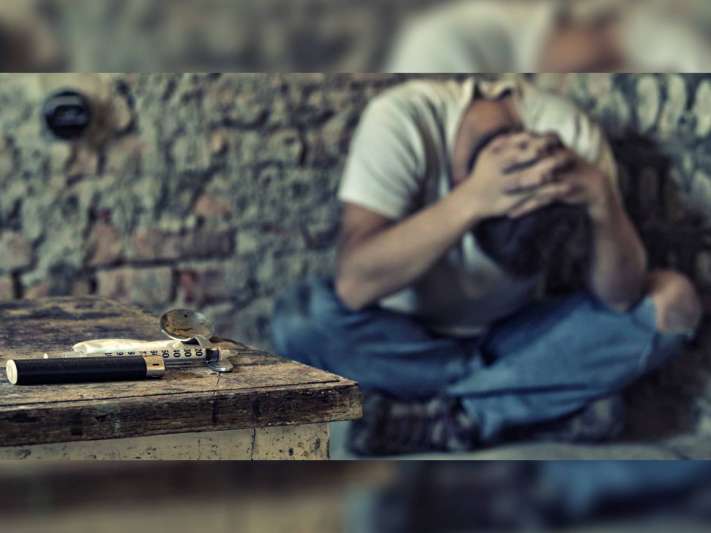The Green Valley Foundation, founded and headed by Mrs. Uma Raj talks about drug and addiction scenario in Vizag city with Yo! Vizag.
Q. What is Substance Abuse? How serious or life-threatening is substance abuse?
A. Substance Abuse can be defined as a pattern of harmful and excessive use of any substance for mood-altering purposes. The difference between substance abuse and addiction is very slight. Substance abuse means using an illegal substance or using a legal substance in the wrong way. Addiction means a person has no control over the use of the drug or drink. Addiction begins as substance abuse, intensifies and gets out of control. Some substances are more addictive than others: Drugs like crack or heroin are so addictive that they might only be used once or twice before the user loses control.
The common misconception amongst most strata of society is that an addiction is only street-drugs and alcohol related. In reality, addictions are as diverse and varied as they are disastrous. Theoretically, almost any substance can be abused. The substance in question might not be a drug at all, like inhalant, glue, solvent or cough syrup; or it even might not have any significant mood-altering or intoxication properties, such as anabolic steroids.
Q. What are the usual addictives, which come under ‘substance abuse’ other than hard illegal drugs?
A. In Vizag itself there have been many instances of addiction to prescription drugs, cough syrup, pain killers, sleeping pills, and anti-depressants; inhalants like glue, shoe polish, spray paint, lighter-fluid and solvents (whitener), in addition to alcohol, smoking and street-drugs. The user initially starts with popping pills, and when that doesn’t suffice, they graduate on to injections and stronger illegal drugs.
Q. Which age group is most likely to fall into drugs?
A. Teenagers and those in their early twenties are the group most likely to experiment with inhalants, illicit drugs, pills, alcohols and smoking. Anyone form their twenties and above can get addicted to alcohol, prescription pills and similar drugs as an escape from stress, anxiety and depression.
Q. How does drug-abuse start?
A. First time users are almost always young, initiated into drug use with alcohol. Amongst friend circles, the availability of drugs, curiosity, peer approval and thrill-seeking entice them to ‘experiment’ further. In some cases, to cope with unrecognised psychiatric or emotional problems, emotional issues caused by dysfunctional families, feelings of self-hate and low self-esteem also lead to incidences of drug abuse as a coping mechanism.
Q. How come parents do not realise that their children are becoming addicts?
A. The hard truth is that parents are usually the last to know of their child’s addiction. Children get adept at hiding alcohol and drug use from their parents, and parents do not want to believe it to be possible. Furthermore, the vivid changes in a child’s behaviour brought about by adolescence, makes it even more difficult for parents to spot the signs of substance abuse.
Q. What are the signs to look out for to recognise an addict?
A. Physical changes like a dull vacant look, puffy or droopy eyes, unexplainable loss of weight, unsteady movements, slurred and unclear speech
Behavioural changes like uncharacteristically withdrawn, secretive, inexplicable mood shifts, erratic eating and sleeping, lethargic and uninterested in once favourite activities, negligent about health and appearance, decline in academics, irrelevant talk, watery eyes
Changes like frequently borrowing money/stealing, constant need for pocket money, lying often, being unreasonably defensive about activities/possessions and privacy, unexplained temper outbursts, sudden excessive use of perfumes, mouthwash or other scents (to hide smells), associations with a totally different set of friends, difficulty in concentrating, frequent visits to doctors/medical shops for medical issues and prescriptions
Q. How do you treat an addict?
A. There is no general cure to treat any addiction. Each case is different, depending on the type of addiction, the intensity and for how long the addiction has been there. As in all diseases, timely treatment is essential. In some cases, sudden abstinence can even be disastrous. Medical and psychological intervention is always advised. Will power alone is not sufficient; it is more beneficial to seek assistance from family, friends and a trained counsellor.
In my personal experience and opinion, the best approach is to treat ‘addiction’ as a multifaceted disease which affects not only the individual, but family as well. More often than not, it is not only the individual who needs their acceptance and support to get back to normalcy and start life afresh; the family too needs to be nursed for the heartbreak, and psychological trauma they faced.
Recovering from a drug or alcohol addiction doesn’t end with just a treatment program. It’s a lifelong process that involves not only abstinence but also lifestyle changes.










Discussion about this post